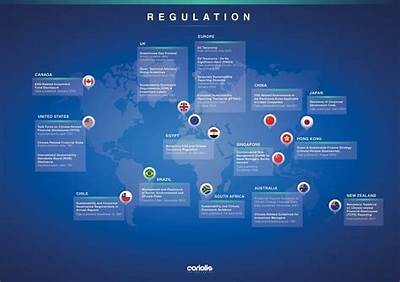Brazil, a vibrant nation known for its cultural diversity and rich history, has a complex relationship with gambling and casinos. Despite a ban on gambling since the 1940s, the history of casinos in Brazil is intriguing and reveals the tension between regulation and the desire for economic growth. This article explores the evolution of casinos in Brazil, examining their historical context, current regulations, and potential future trends. Gambling in Brazil dates back to the colonial period, where card games and betting activities were prevalent. The first casinos emerged in the early 20th century, especially in cities like Rio de Janeiro and São Paulo. These establishments quickly became centers of social and cultural activity, attracting both Brazilian elites and international visitors. However, the situation changed dramatically in the 1940s when gambling was outlawed under President Eurico Gaspar Dutra's administration, primarily due to concerns about organized crime and moral implications. The prohibition of gambling led to a flourishing underground gambling scene. Many Brazilians continued to participate in illegal gambling activities, from clandestine poker games to illegal betting rings. The Brazilian government has since faced a dilemma: how to control gambling while generating revenue and curbing illegal activities. Over the years, various attempts have been made to lift the ban on casinos, but each faced significant opposition from religious groups and conservative politicians. As of 2023, Brazil is on the cusp of significant changes in its gambling legislation. Several bills have been proposed to legalize and regulate casinos and other forms of gambling, including online betting and sports wagering. The Brazilian National Congress has been actively debating these proposals, with potential implications for tourism and economic growth. Advocates argue that legalizing casinos could create jobs, boost tourism, and provide much-needed tax revenue, while opponents worry about the social consequences of legalized gambling. The potential legalization of casinos carries substantial economic implications for Brazil. With a booming tourism industry, particularly in Rio de Janeiro and São Paulo, the introduction of casinos could attract both domestic and international tourists. This influx could stimulate local economies and create job opportunities in various sectors, including hospitality, entertainment, and retail. Additionally, regulated casinos could lead to increased tax revenue, which could be allocated to public services such as education and healthcare. While the economic benefits are compelling, the legalization of casinos also raises social and cultural concerns. Critics argue that gambling can lead to addiction, increased crime rates, and other societal issues. Brazil’s rich cultural heritage and focus on family values may be at odds with the potential normalization of gambling. Engaging the public in conversations about responsible gambling practices and creating support systems for those affected by gambling addiction will be crucial if casinos are legalized.
Looking to the future, the evolution of casinos in Brazil will likely be influenced by technological advancements. The rise of online gambling platforms and mobile gaming is transforming the landscape of entertainment and betting. Legalizing these options could provide safe and regulated environments for gamblers while also generating substantial revenue for the government. Additionally, incorporating technological innovations like augmented reality (AR) and virtual reality (VR) into the casino experience could enhance customer engagement and attract a younger demographic.
Brazil’s journey toward gambling regulation can benefit from examining the experiences of other countries. Countries like Canada, Australia, and the United States have successfully integrated casinos into their economies while implementing strict regulations to mitigate negative social impacts. Learning from these best practices, Brazil could develop a robust regulatory framework that balances economic benefits with social responsibility.
The evolution of casinos in Brazil is a multifaceted issue involving historical, economic, social, and regulatory dimensions. As the country navigates this complex landscape, stakeholders must work collaboratively to craft policies that address both the potential benefits and risks of legalized gambling. With careful planning and a focus on responsible gaming practices, Brazil may well be on the verge of a new chapter in its gambling history.
Brazil casinos, gambling legislation, economic impact of casinos, responsible gambling, casino history in Brazil, future of gambling in Brazil
```Exploring the Evolution of Casinos in Brazil: History, Regulations, and Future Trends
Introduction

Historical Context of Gambling in Brazil

The Casino Predicament: Regulation and Prohibition

Current State of Casino Legislation

Economic Implications of Legalized Casinos

Social and Cultural Perspectives
Future Trends and Technological Innovations
International Comparisons and Best Practices
Conclusion
Tags
